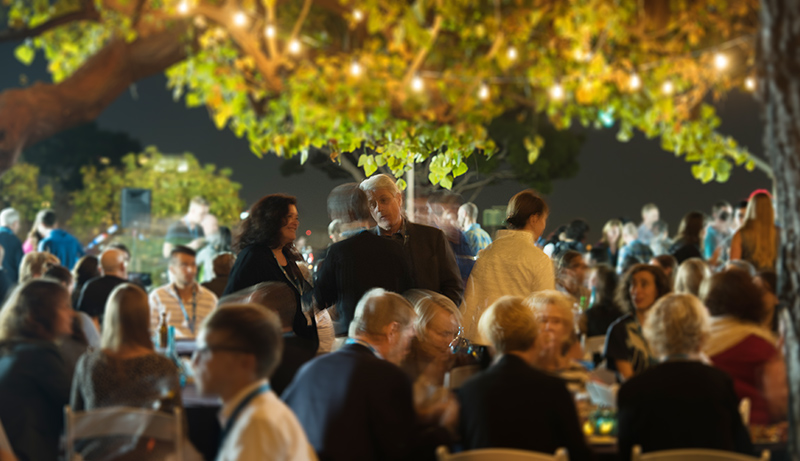
For those who recently attended Mind & Life’s International Symposium for Contemplative Studies (ISCS) in San Diego, the experience provided an unusually intimate and affirming sense of connection and possibility — amid 1200 attendees. This was partly due to its timing, immediately following the presidential election, which prompted some of the speakers and panelists to point hopefully towards renewed purpose and resilience. Indeed, several conference attendees commented that there was no other group of people with whom they would rather be at the time.
That sense of connection and possibility was also due in part to the Mind & Life Institute’s coming of age, through our efforts to develop and catalyze this unique cross-disciplinary community over the past 30 years. This sentiment was captured by Richard Davidson during his opening keynote address with Matthieu Ricard, when he noted the professionalism and scope of the conference, saying, “Mind & Life is going to be around a lot longer than we are!”
Mind & Life helped to establish the field of contemplative sciences so that all people can better understand the mind and its power to alleviate suffering and promote well-being. And now a kind of critical mass can be observed during events like ISCS, where 50% of the participants were attending a Mind & Life event for the first time, and where new professional relationships and common cause flowed from almost every conversation, and where research was presented showing an increase in the application of contemplative practices within a variety of institutions — suggesting that a shift is underway.
This shift comes from the individual efforts by many of Mind & Life’s oldest and dearest friends and partners, as well as the newest generation of students and practitioners who are individually converting the years of research that Mind & Life helped to initiate, into actionable improvements in public policy, education, health care, social justice, the military, the criminal-justice system — virtually every sector of society. This research and its application is happening organically, with rigor, and it remains nascent and decentralized in a way that suggests legitimacy and independence from the commercialism that is also taking root around these topics.
The ISCS conference also provided an introduction to Mind & Life’s president, Susan Bauer-Wu, whose articulate leadership and vision for expanded emphasis on ethics, compassion and diversity in our field has inspired expressions of confidence from our broad constituency. Susan is clear-minded regarding the role of Mind & Life as a convener for the field of contemplative sciences, bringing together large groups like ISCS; and just as importantly, bringing together small think tanks and incubators where experts can identify and refine serious topics that deserve the attention of researchers, practitioners, leaders and policy-makers alike.
Mind & Life will continue organizing and sharing the cross-discipline efforts underway in both research and in application. We will continue serving as the hub for the various disciplines and participants who share an understanding that we still have much to learn and much to harness as we awaken to the power of the mind and contemplative practice as a new form of social literacy.
We sincerely thank each of you who attended the symposium, and we appreciate those of you who follow our work and contribute in so many ways to this amazing and potent mission.
ISCS Survey
If you have not yet provided feedback, please take a moment to do so now. It will help us to continuously improve Mind & Life programs. Take the survey »
ISCS Videos
Keynote addresses and master lectures are available on Mind & Life’s YouTube channel. Watch ISCS videos »

